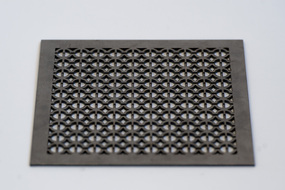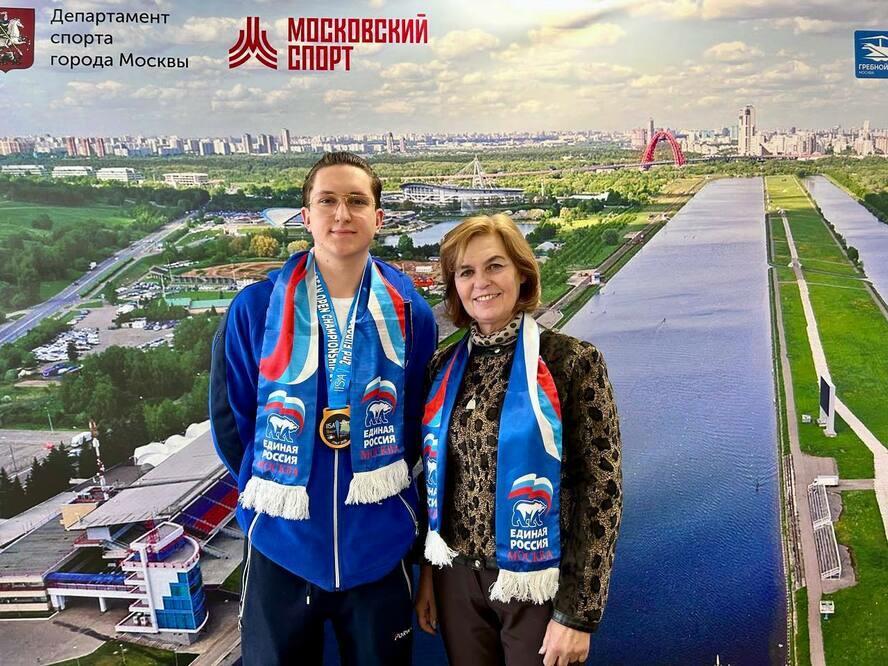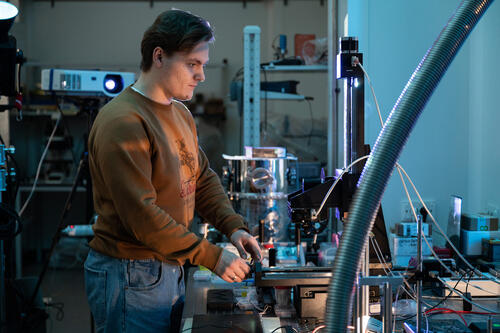Physicists from NUST MISIS together with their colleagues from the Polytechnic University of Turin (Italy) and the Scientific and Technological Center of Unique Instrumentation of the Russian Academy of Sciences (STC UI RAS) have developed a technology that makes various elongated objects, such as antennas and various sensors, aircraft landing gears, ship masts and airport towers invisible. The invention is based on an innovative metamaterial that eliminates an object’s electric type scattering. The result has been published in the Scientific Report international scientific journal.
Any elongated metal object, for example, antennas or cell towers, including the 5G ones, has an electric response — a signal that appears in response to an impact. To hide such an object from radars, the object must begin to scatter light, like an object with a magnetic response, which is very weak. This was accomplished by scientists from the Russian-Italian scientific collaboration, in the framework of the “ANASTASIA” project (Advanced Non-radiating Architectures Scattering Tenuously And Sustaining Invisible Anapoles), named after the Grand Duchess of the Russian Empire Anastasia Romanova.
“We came up with a special coating based on an ideal magnetic dipole scatterer that turns an elongated metal object with an electric response into an object with a magnetic response,” said one of the researchers, associate professor at the NUST MISIS Superconducting Metamaterials Laboratory, Alexey Basharin. — This has become possible due to the anapole state of the coating material, which lowers the electric type scattering to the level of the magnetic one and even lower. As a result, the object becomes invisible.“
The first of the possible applications of the new coating will be STEALTH technology for military and civilian purposes — to hide various elongated objects, such as aircraft landing gear, antennas and various sensors, ship masts and airport towers. The developers emphasize, that if the task of hiding these objects from enemy radars is trivial, the task of electromagnetic compatibility of antennas on satellites is vital: antennas must not affect each other. And this will be possible only if they are invisible.
The method will help hide the structures of airports, operator towers so that they do not interfere with radar and communications with pilots. Besides, the development will find application in the so-called “Magnetic light” tasks, where it is necessary to enhance various magnetic phenomena: in nano-antennas, nano-lasers, etc.
“Another idea discussed in this work is that we were able to develop a coating that makes the impedance of the cylinder equal to the impedance of the surrounding space due to the special form of the sinusoidal metamaterial. It gives the following effect: the incident electromagnetic wave completely does not notice the cylinder object and passes through it without hindrance. Important progress of our work is that we have applied a flat coating, and not bulk heavy structures,” added Alexey Basharin.
The research of the team is a theoretical work and demonstrates new methods and open effects. The next stage of the project and the immediate goal, according to the researchers, is to learn how to reduce the magnetic response of elongated metal structures.
“We have already deduced the theory for super-toroidal configurations earlier. Now we want to show it experimentally. Thus, we will come closer to solving the problem of complete invisibility. Although according to the optical theorem, it is impossible to create perfect invisibility, we can take a big step towards this,” concluded Basharin.




